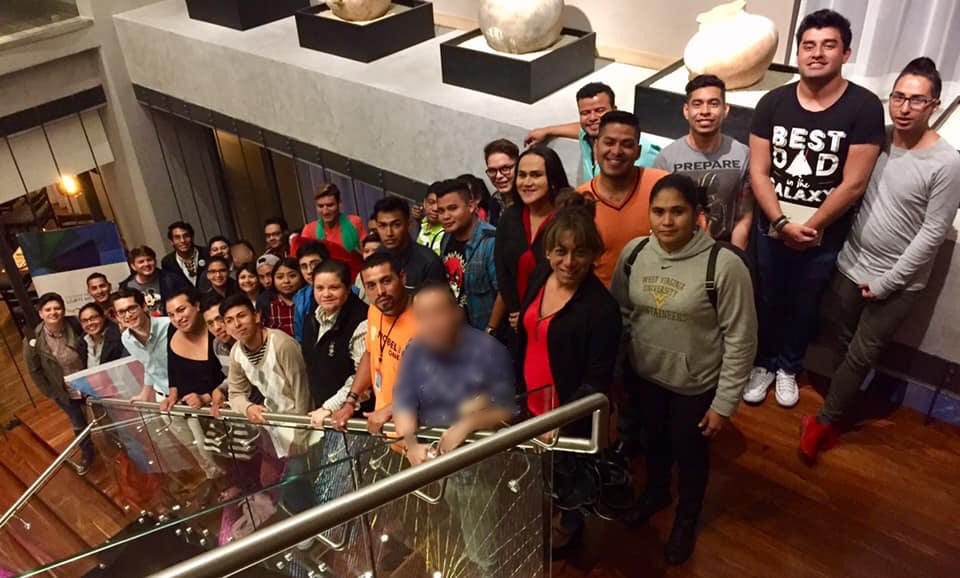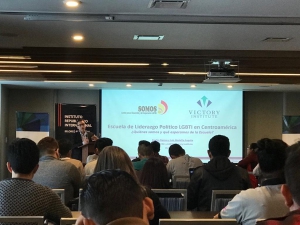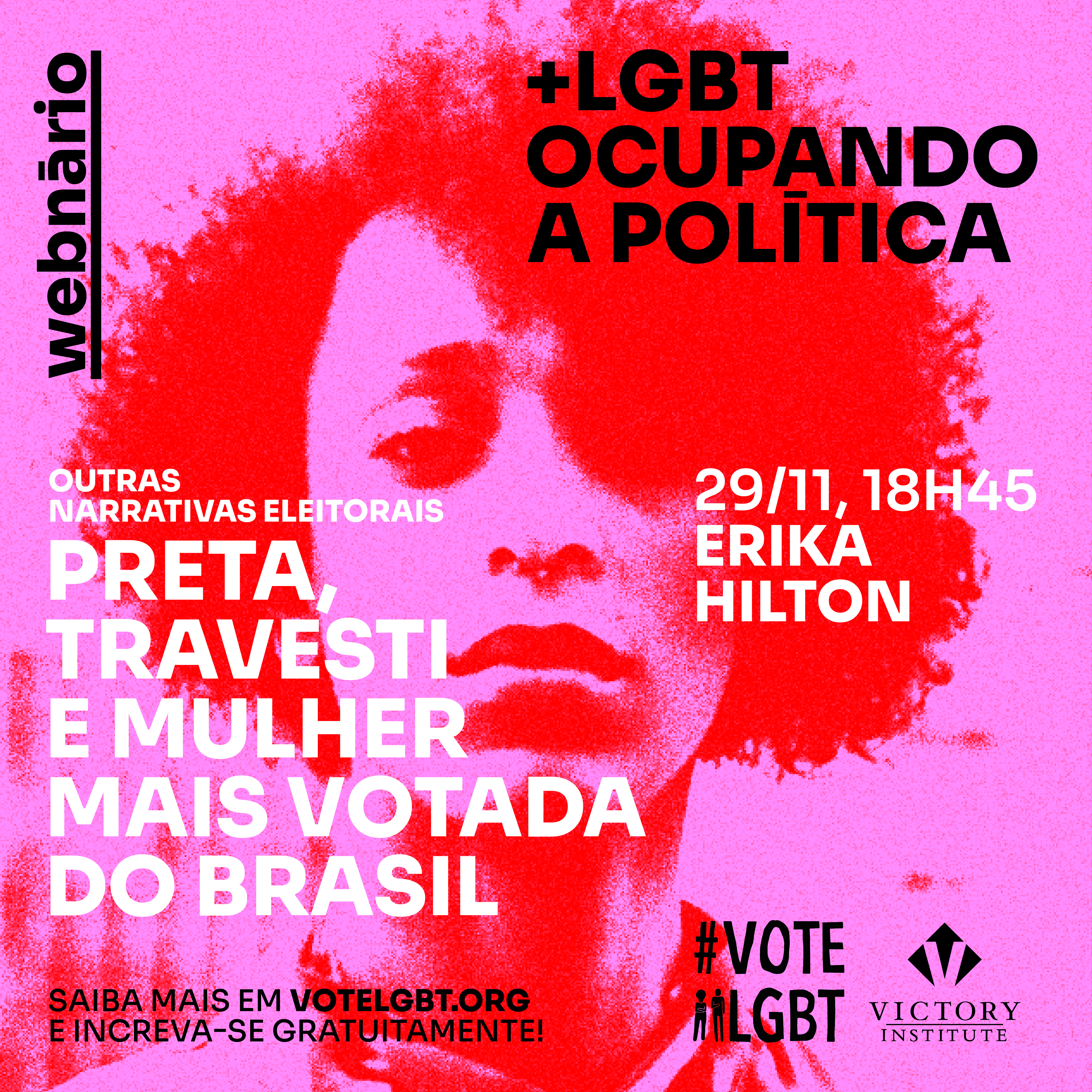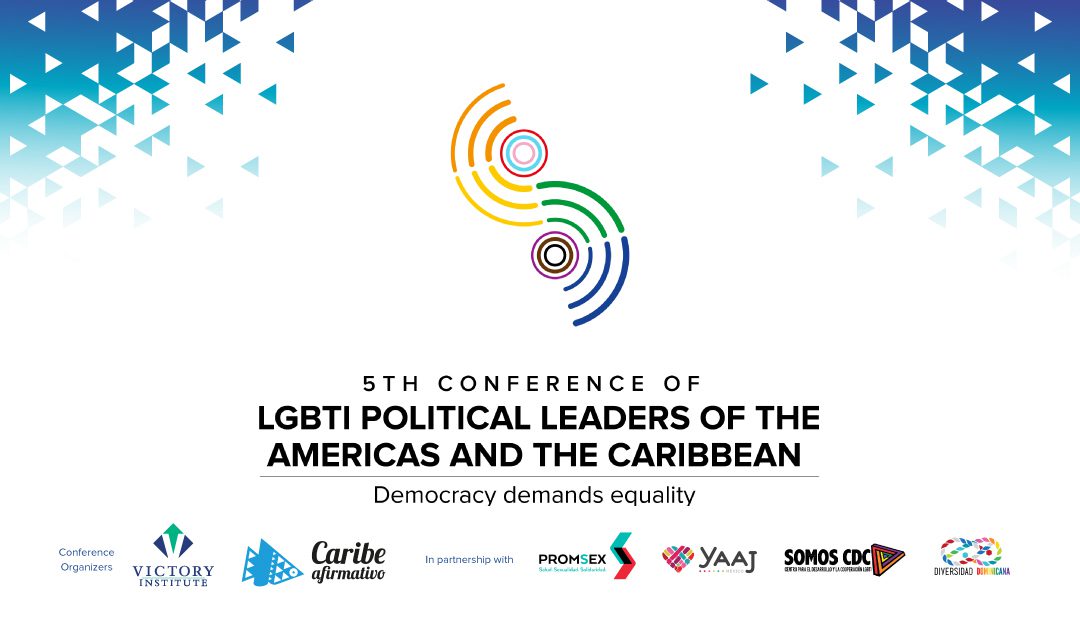
Last week we hosted our second module of our Escuela de Liderazgo Político LGBTI en Centroamérica –– School of LGBTQ Political Leadership in Central America. Victory Institute was on the ground in Guatemala City to help participants better understand regional policies, gain oratory skills, and improve self-branding. They spent the weekend learning how to handle interviews/debates and examining existing political structures in regional contexts. The two-day training convened over 30 people from Guatemala, Honduras, El Salvador, and Nicaragua –– all willing to gain the tools necessaries to run for office. Participants represent a wide range of backgrounds and life experiences, but they’re united in the mission for increased representation and inclusion.
Among those who participated was Marcela Urizar, an activist whose work is helping trans women prevent sexually transmitted diseases. Marcela collaborates with the Association of Trans Women in Action (Spanish abbreviation: AMTA), which works to enhance the political participation of trans women in Guatemala. This organization has lobbied for proposed legislation to protect gender identity in Guatemala and have successfully challenged various anti-LGBTQ discriminatory legislation.
Working for the same cause is Galilea Bracho, another participant in our Leadership training. Galilea is one of the founders of REDMMUTRANS, a Guatemalan organization that brings together trans women of different ethnicities from all over the country. Their work is focused on strengthening the State institutions, promoting and protecting Human Rights, and educating people about health issues. Also, they monitor interactions between the state and the trans community to make sure discrimination does not occur. They work in collaboration with other vulnerable groups and have taken action to protect pregnant women’s right to choose and indigenous rights, among others.
Thanks to her collaboration with different governmental institutions, Galilea has helped more than 150 trans women to get their name changed on their official ID, a procedure that is so expensive in Guatemala that only privileged people have access to it. Both Marcela and Galilea said that they have gained confidence through the leadership academy and that they can see themselves being candidates in the near future.
Attendees are engaged in politics from different angles. Besides the excellent work done by our trainees in the civil society sector, some of them work for equality from within political parties or State Institutions as well, like Erick Ortíz and Líam Linares from El Salvador. Erick has been an activist for the defense of democracy long before becoming an LGBTQ activist, as he worked as the director for youth representation in one political party while facing rejection from the conservative sector of the party. Nevertheless, in 2015 he continued his work inside and out of the party and became the coordinator of “Colectivo Normal”, an organization that works for inclusion and diversity in all its manifestations. As for Liam, he has participated in the planning of several electoral campaigns. He is now a law student and has contributed to the liberation of women in El Salvador incarcerated for abortions caused accidentally or via miscarriage.
There are also people with previous electoral experience who used their experience to share best practices. Karla Paredes, a lesbian feminist and specialist in environmental issues, who ran for office in Honduras. Karla shared with the group that one of her greatest achievements is having to find a way to create alliances with activists from different spaces, particularly feminists, no matter their sexual preference or gender identity and expression. She also affirmed that with all the knowledge acquired from the training, she feels confident in running for office again in the near future.
Finding allies is one of the most important skills learned at our trainings. Our participants from Nicaragua endure particularly dangerous challenges with visibility. Forging connections between different groups or communities is very much a matter of survival. This intersectional work takes on a variety of forms – some work as counselors for other human rights organizations; others shared tips on building political power with like-minded organizations that don’t face the same risks with visibility. They faced multiple obstacles to be a part of our training, and just by being present, their security and freedom is endangered. Nevertheless, they learned that solidarity is the best tool against adversity and they are confident that what they’ve learned will help them contribute to a more inclusive and tolerant nation.


